Games Workshop – What Are You Thinking?
January 17, 2014 by warzan
So yesterday had an interesting development, in a sudden slide in the value of Games Workshop stock upon the announcement that they had a sizable drop in turnover and a hefty drop in profits.
Every single one of us in the industry will have an opinion on this, but that has to be tempered with the knowledge that very very few of us will fully understand the implications of yesterdays news (if any), and just what exactly is going on.
This is my riff on the topic…
I have been running small businesses with my brother @lloyd since we were 18 and 16 years old, in that time we have had the good fortune to work with some of the larger companies (and their management) in the world, across quite a wide range of industries.
We have repeatedly seen incompetence, as that just exists everywhere and in everyone of us, as you just can’t get it right all the time, but we have also seen some stellar business people in action.
Something they have all had in common was, they never allowed a knee jerk reaction to influence their strategy for the company.
A strategy for a large corporation could be 10, 20, 50 or even 100 years in terms of its foresight and time to execution. (Look at Google's recent investments for an example of this)
In that time many factors, hiccups and disasters can strike, but unless you understand the grand strategy it’s very difficult to say what effect these ‘bumps in the road’ have.
GW in their mission statement say they want to do what they are doing forever… and forever is a long time.
Lets have a look at their business and see if we can spot the strategy.
The battle with online retailers.
This was a simple and clear threat to GW, if it wasn't controlled, it would devalue their product until it became a commodity that would sell in pound shops. You see anyone could sell online, and with the way trade terms were set up, GW would act as their warehouse. No investment was required, and no love for the product necessary. If you succeeded great, most likely you were cheaper and had the gumption to advertise as much as possible to facilitate fast growth, but while GW were acting as your warehouse, your risk and exposure would be very low.
In the mean time the nature of the business would change from one of quality and 'buying into the hobby', to one of cut throat discounts to ensure you would come out top of the land grab.
If it continued the cost of product would fall for sure, but the profit margins would become so squeezed that there wouldn't be enough profit generated to actually continue with the expensive stuff of creating and supporting the product and intellectual property that gives it it's value.
(If you want evidence look at the areas GW has been cutting over recent years, people from stores (that's support), the support lines (that’s support too), the more expensive game designers, sculptors and painters (that’s development), Games Day.
GW could have found itself in the position that the bulk of support requests were from those who were buying the products cheaper online, but then requiring the support of their stores and helplines to make sense of their new hobby.
So they are left with the difficult situation of:
|
Activity |
Cost |
Who’s responsible |
|---|---|---|
|
Development |
High Cost |
Games Workshop |
|
Design |
High Cost |
Games Workshop |
|
Manufacture |
High Cost |
Games Workshop |
|
Distribution |
High Cost |
Games Workshop |
|
Warehousing |
High Cost |
Games Workshop |
|
Selling Online |
Medium Cost |
Online Retailer / Games Workshop |
|
Selling Instore |
High Cost |
Games Workshop / Independant Retailer |
|
After Sales (product and hobby information) Support |
High Cost |
Games Workshop Stores / Games Workshop Phone Support / Independent Retailers |
So looking at the above, the party with the lowest risks, were the ones forcing the cost of the products down the most. Yet those with the highest costs were still carrying the burden of creating and supporting the products, with less profits from which to do it.
Of course the landscape has changed somewhat now, trade terms were introduced to try and redistribute the risk around the eco-system that delivers GW products. Margins were reduced for online retailers and trade terms were focused around the aspects of supporting the customer.
Today no retailer outside of Games Workshop carries the full range of GW products, and GW have a policy of the larger your order is, the longer you will have to wait for it to arrive at your warehouse. This is basically saying, if you want to be big, then invest in carrying the range, as we don’t want the cost or burden of acting as your warehouse.
So you buy online, and you could wait anything up to a month for delivery.
Back to the strategy…
So GW want to provide their products forever, however they blindly stumbled into the age of the internet, and the mess they are in today is largely of their own making, and their lack of foresight on these matters is unforgivable… but… to be fair at least understandable. (We all make mistakes - Google missed out on Social!)
The day came when the alarm bells finally went off and they would have seen the writing on the wall, the online retail model, was going to kill Games Workshop. Because GW was not structured in any way whatsoever to support or thrive in an environment where online retail at discounted prices would be the predominant method of supply to the end user.
When the writing's on the wall, they had two choices.
1) Work with all involved in trying to better structure the eco-system to support the business.
2) Force through changes to try and protect the business immediately.
From my understanding they opted for choice 2. Perhaps they felt they were too big to be bothered working with anyone outside, I know from our experience as Beasts of War, we are looked upon with contempt like we are something stuck to their boot, so it wouldn't surprise me in the slightest if arrogance ruled more than logic.
However these days, I’m not sure option 1 would have fared any better for them, as even if they wanted to work with those in the eco-system, I’m not convinced the eco-system would have shown any less arrogance.
Coupled with the legislation issues around cartels and price fixing, which I’m not suggesting for a second would have been the purpose of these talks, but you can easily see why GW would be very careful so as not to even give the slightest cause for concern to regulators.
This was not about fixing prices, this was about saving a company and a hobby.
Today
Today, GW have tightened the reins on online retail massively, they have created an environment where if an online retailer wants to be efficient (remember no new ones can join unless they have a physical store), they need to invest up to 1 million pounds in GW stock, and that is unlikely to happen. They have introduced clauses to limit how retailers grow in terms of their own media engines (this was one that directly affected ourselves) ensuring that no competitors grow out of their own eco-system.
They have raised prices to increase the profit margins to try and support the key areas of the business.
They have structured product releases and the availability of products to ensure that those hard core buyers, the ones that are more into their hobby than savings, will buy direct, because that’s where all the products are available (limited editions and direct only stuff), and flow the fastest (in stock and ships next day).
They are gradually turning their stores into lower cost ‘recruitment’ centers, and are pulling more and more of their new recruits online to continue the relationship with them there. The day will come when the recruitment centers will close or become shopping center kiosks.
Strategy again…
The net result of all this is a drop in sales and profit. But when you consider the alternative (boom and bust), perhaps this is all part of the strategy.
Would you do things any differently? … Given the circumstances, I’m not sure I would!
[poll id="7"]
"Today no retailer outside of Games Workshop carries the full range of GW products"
Supported by (Turn Off)
Supported by (Turn Off)
"This was not about fixing prices, this was about saving a company and a hobby"
Supported by (Turn Off)
































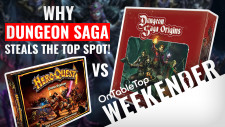



![TerrainFest 2024! Build Terrain With OnTableTop & Win A £300 Prize [Extended!]](https://images.beastsofwar.com/2024/10/TerrainFEST-2024-Social-Media-Post-Square-225-127.jpg)






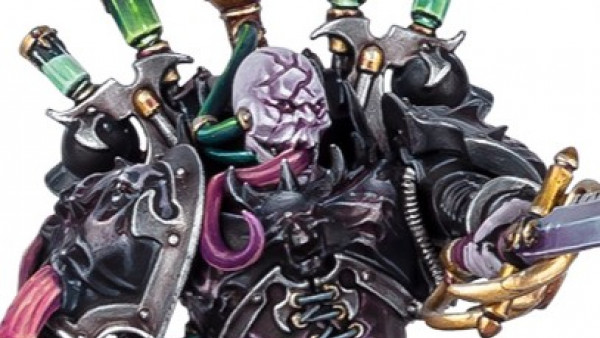
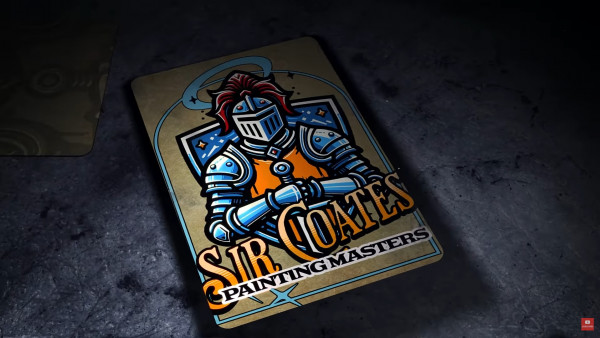
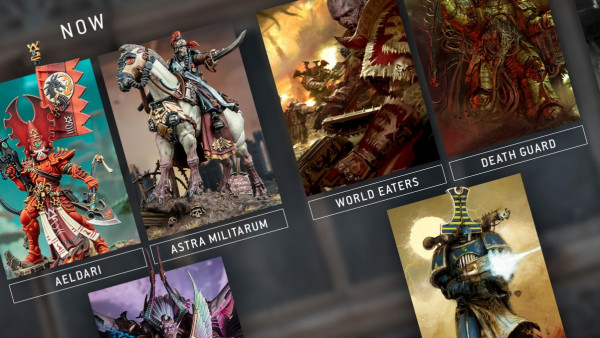
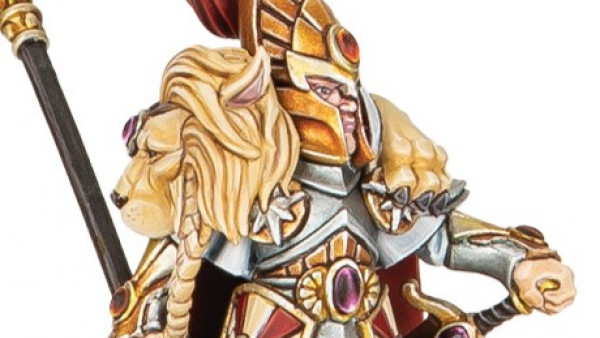
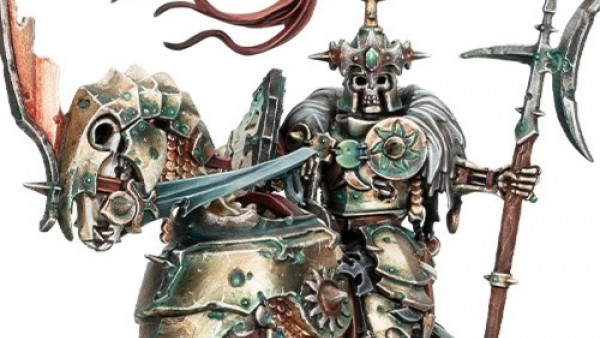
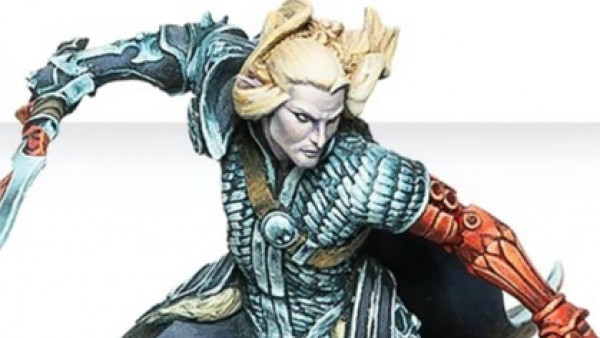
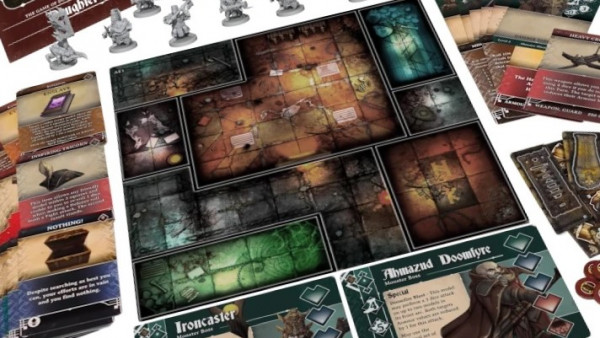



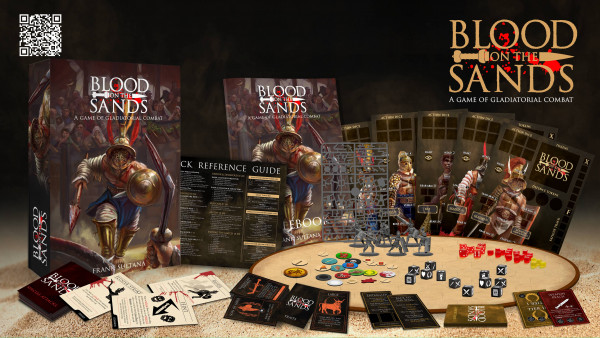
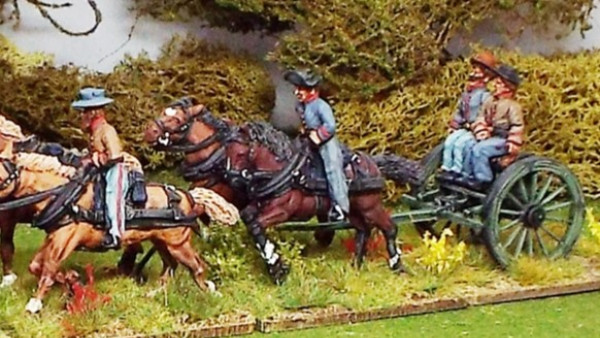
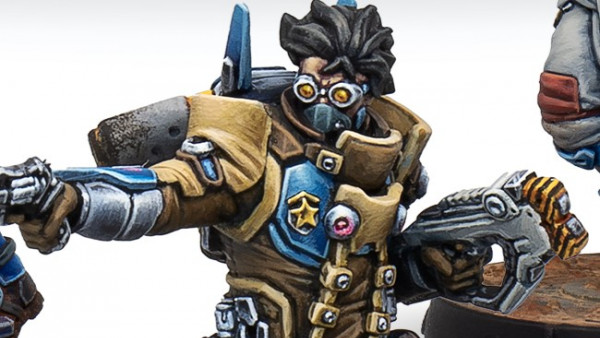

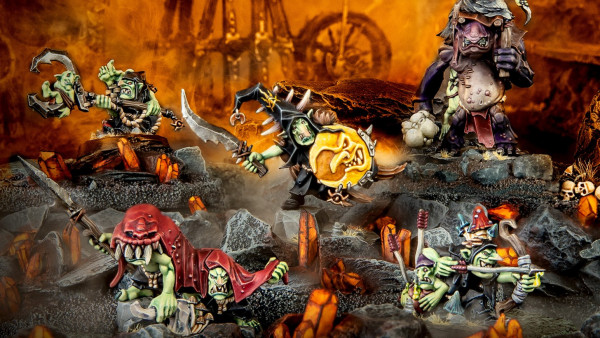
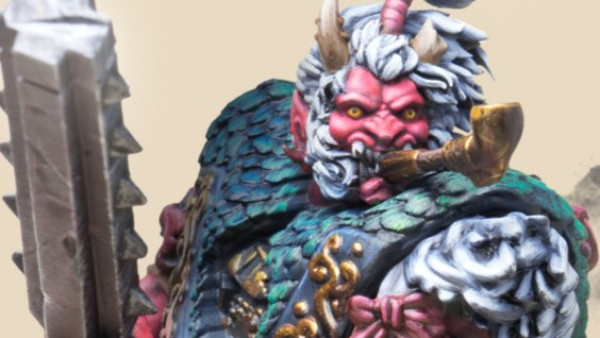
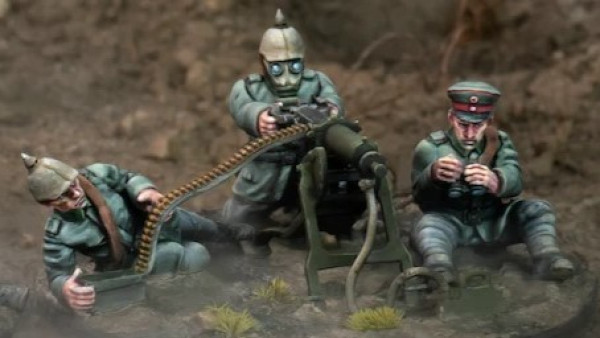
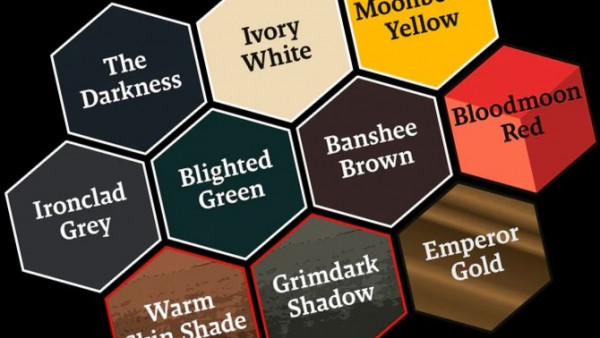
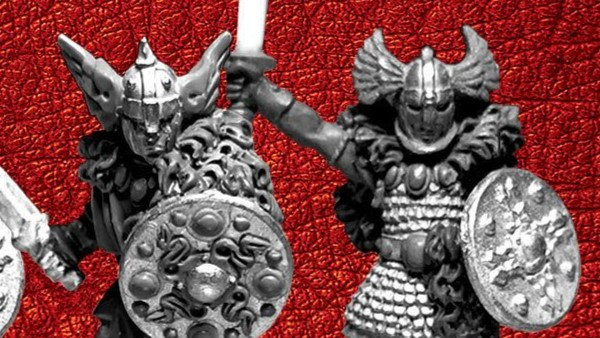
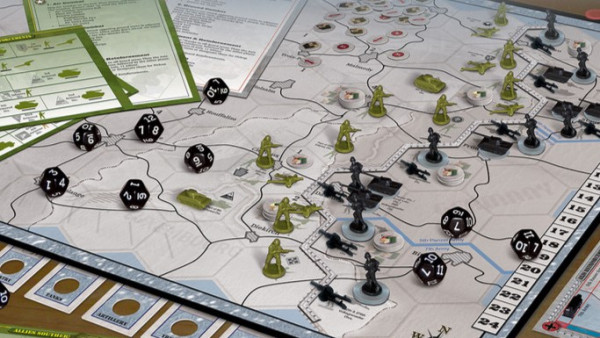












I’m not sure the huge discounts that the old online retailers offered threatened GW product as much as they threatened established independent retailers. GW got the trade sale and the same amount of money either way. What it did mean was that GW couldn’t remotely compete on price. It wasn’t that the price of the product was being depressed, it was that the direct sales and they additional revenue they provided was being threatened. GW in recent years has been focused on cutting costs and maximising revenues. These terms were a way of doing the latter. They could argue that… Read more »
It all equates to the same thing, profits. Profit is the only thing that facilitates growth (other than borrowing).
Turnover without profit is only paying the bills. So anything that reduces profitability, ultimately threatens future investment.
Warzan
Do you feel if GW introduced another range which is more in with what is out there say a 15mm 40k range would they mange to claw back the loss and make more money, there are lots of people who feel GW should offer a 15mm range to there 40k universe. It would appeal more look what Battlefront are achieving with Flames of war World War 2 and Vietnam.
Once again, I’m not Warren but am still going to reply lol. GW have done smaller scale games in the past. Epic was a 40K game in 6mm. The problem with them is two-fold. The first is that they don’t lend themselves to the painting and modelling side of the hobby as well as 28mm+ minis, and that’s a big part of the appeal that GW has built their business on. The other is that is splits the player base. Either the split is skewed strongly to one game or the other, which is what happened to Epic which was… Read more »
@hawker2000 How about GW just do what their name implies and make GAMES.
Games Workshop are really Citadel Miniatures. They bought GW out 30 years ago.
Sounds like another price hike coming to Australia, yay. Never fear Aussies can pay for it. Seems GW is writing their policy just like they did the new Nids Dex. Leave out spore pods – Because we lost a suit. Failure to make miniatures for rules. They are playing within the spirit of the game. Leave out parasite – Cull chop shops, Minimise online business for external retailers. Customers who are loyal to gaming communities that purchased from and built a relation with retailers that can no longer stock the line of product that brought them close. Hike the price… Read more »
Well you’re only £775,000 of their profit every year, not including shipping. Give a few years and Australia wont get any Games Workshop products unless specially ordered and shipped
Living in Europe myself, I’m amazed you Aussies haven’t converted the entire army from eBay or use exclusively alternative minis. Really hard to play the game otherwise I guess.
I see what your saying guys. The question I have is what happened this quarter to have such a drop in profit? 25% looks to me as a steep drop in stock. For most of my friends that played and still play, they hate the company. It’s a rare company that generates such venom from it’s clients. Only a hand full come to mind that have the same amount of hate coming to them. In most cases that company provides something at least perceived as essential and must be tolerated due to lack of competition or necessity. Games Workshop on… Read more »
Problem is they are making it hard for the brick & mortar stores also. A large component is special items and back catalog items and GW shot themselves in the foot with that one. My store can’t even buy the back catalog stuff anymore from GW, they have such a restrictive policy. When the nearest GW store is 8 hours away, the local hobbies shops are where their product must be sold. In the long run they are going to price themselves out of the market, and destroy all the good will of the independents, unless they do something about… Read more »
In my home town I have a Games Workshop directly opposite an independent wargame store. I go into GW, look at the awesome models in the cabinets and on the tables, then go across the street and buy my Warhammer from the independent at 15% cheaper. I feel slightly guilty about it, as the chap in the GW store is a real nice guy…this model can’t be sustainable for GW.
GW’s business model relies heavily on high street retail. Looking at HMV, Virgin, etc. that’s not a great idea. They’re kinda stuck with it as they rely on kids, who aren’t necessarily able to shop online easily (certainly not without parents asking awkward questions about how much they’re spending on 10 Witch Elves ;)).
So for most businesses the asnwer would be to ditch (or drastically cut) their retail presence, but for GW it’s a genuine dilemma.
They live in interesting times.
GW’s problems are actually very simple, none of the analysis actually matters afger the fact that they’re looseing customers in the 18-30 range much faster than they gain new blood in the 12 -18 range. What is after all a toy company is always going to have a slight drop off around the cusp of adulthood, but they’ve failed to make their product accesable, by pricing out pocket money purchases, and a physical innaccesability in some places EG the heavy restriction on online sales over the pond, the net result being less players. That fault is were GW really really… Read more »
“GW’s problems are actually very simple, none of the analysis actually matters afger the fact that they’re looseing customers in the 18-30 range much faster than they gain new blood in the 12 -18 range.” I find this a particularly compelling argument – The kid with the paper-route or who pushes the ice cream cart is being priced out of the market, leaving only the kids of affluent parents who indulge wargamming. A lot is said about the mega-spenders in the hard-core range but has sustainability been damaged by gutting the entry level? I don’t know but I find it… Read more »
I think that might be the main issue, when I was starting out a couple decades ago i could nip into Toymaster in paisley or GW in Glasgow with a fiver and go home with a box of 5 or 6 dudes or a small bike sized vehicle or a dude on a horse etc, birthday or christmas money would see me lugging enough stuff home that the cardboard packageing would have had an impact on the rainforests visable from space. Now it would get practically nothing, so they don’ t get the benefit of selling a kid something with… Read more »
But they do not make toys though. They basically sell pieces of art with a support game to help facilitate multiple purchases. Children may mistake them for toys though.
Children can never get the fun or intellectual investment out of these games or models than a teen or adult. But it’s a good hook and it’s always good to start the learning curve early.
And an adult, who loves the products, is a far better source of money than a child who gets pocket money and can can maybe one starter set for his birthday.
It’s not pocket money that GW are relying on. Their belief is two-fold, that by the biggest section of their consumer base is children, and that modern parents will always buy their children what they want to exclusion even if it means going without all but the most fundamental of essentials themselves. Their mantra is that they are recession proof for this reason.
*to the exclusion of spending any money on themselves
I agree warren, but I do think that a box of tactical space marines sold at £15 would still give all the shareholders a good profit by the end of the year. Lets face it they would sell more which means profit would go up, compared to todays over priced products. I am a veteran gamer in my middle ages and I can remember when Games Workshop said that they are switching to plastic. It caused out cry in the community as people were concerned that they would use a soft plastic like the old Airfix soldiers…lol. But no they… Read more »
As I said in the forum thread, pricing is an issue, specifically the cost of entry, but I do think ,whilst everything you mention is completely right, it doesnt touch the underlying problems. And that is the games are just not very good any more. Thats the crux of it, forget the business and marketing, the internet has enabled people to see a wider world of gaming (and THAT is the main source of disdain for you I would think, this site allows a direct comparison of product and experience of different games, they do not fair well), the problem… Read more »
“And that is the games are just not very good any more.”
That is purely subjective. Plenty of others would vehemently disagree 😉
I think, in terms of the market as it now exists, GW games are no longer the pinnacle, they used to be, the best minis, the best worlds, the best games. Other companies make better games now, and they are relatively easy to get hold of. 25 years ago the former could arguably be true, the latter wasnt. GW are essentially still producing a variant of third edition 40K, in market thats moved on 20 years, that is what I mean when I say not very good. I still play 40K, I still play 2nd edition in fact, and I… Read more »
No less a person than Rick Priestly himself believes WFB and 40K as games are weighted down by their history and get more so which each new edition.
Yup but another way to look at that is…
It makes the designers task more difficult, but that does not necessarily mean the end result is worse.
That ‘history’ adds depth in equal measure to encumbrance.
Its not just the weight of history, this edition of 40K has been out for about 18 months.
By my reckoning there are more than 30 additional rulesets to accompany it already.
Some of them are digital only AND rewrite the basic rules (especially the force organisation chart).
Thats just a mess whatever way you look at it.
He was speaking specifically about the challenges that the studio face as game designers when the time comes to write a new edition. Not only can they not evolve the game mechanics, they’re actively hindered from doing new things by having to stick to a thirty year design philosophy. Now I’ll stress, that doesn’t mean the game isn’t good. Ultimately that’s personal opinion. But it does lend a lot of credence to the argument that the games are dated and struggling to compete as game systems to the people who are prepared to let other systems compete when choosing what… Read more »
This weight is even more reason why GW could do with creating entirely new IP from scratch – a new fantasy and scifi game, both of which make use of evolved and modernized rule sets, and create new gateway systems for GW customers. Then from there these modern rules can then be used as the test bed for an eventual modernization or WHFB and WH40K, with those game lines kept as their classic lines, that people can graduate to. Look at what Onyx Path has done with World of Darkness; they ended the old setting, created new, derived IP that… Read more »
Yes it is subjective, but it also comes down to a matter of getting games. I can list many games I would rather play…which is a bad thing. There installed base allows for players like me to stay in the hobby. For a long time the only miniatures game I played was Command Decision and Battletech. Again games I could get. I play WH 40K & Dungeons and Dragons both for the same reason, I can get games of it. In both cases I believe there are more interesting systems I would rather play. That being said… Games Workshop and… Read more »
I just wrote the longest reply to this, then realised I can sum it up reasonably simply: GW are not the only kid on the block any more. This is largely their own fault (cost, attitude, limited product range). This will hit bottom line. Companies like PP, Mantic, Battlefront, Corvus Belli, and many, many more engage with their customer’s better, are equal or better value, and fill gaps that GW doesn’t care about (skirmish games, sports type games, fast-play rules etc). At what point will GW take their heads from their behinds and realise that for the first time since… Read more »
“many more engage with their customer’s better, are equal or better value”
True, but they are also supporting a tiny fraction of the customer base. That support is not an easy thing to scale.
It’s not an easy thing to engage with as many people as GW have in their market share, but GW have “solved” that already, in that they don’t even try to any more, first their own message boards got pulled, then the main facebook page was junked so people could talk to their local store who would have the ultimate get out of jail card of “Nottinham havn’t told us” for anything more complicated than opening times. GW’s only interaction with the fanbase now is white dwarf, going weekly with a smaller edition will IMO help, but print media is… Read more »
Well of course the competition are going to be better value, they don’t have a high street presence…
Isn’t the reason profits are (partly) down, because of royalties? That GW have made a fair chunk of money from computer games in recent years, but with what has happened to Relic, etc.. and instead we’ve had all these little tablet games (Space Hulk / Heroquest / etc..) where we’ve not seen so much of a return? DoW 3 and Total Warhammer (maybe add that 40k MMO ftp thing?) when they do get release, will probably see the GW profits go back up. Note, I’m not commenting on any of the other GW business practices, although I suppose you could… Read more »
Royalties were higher in this set of figures as I recall.
This is simply down to selling less.
I see the fix Warren. Mind control the masses should salve everything…
@warzan, fair point, but they don’t seem to try very hard do they? The website is purely a store, look at battlefront for an example of a website to engage the community, look at how much community engagement mantic or the dropzone people generate through outlets such as your good selves, GW don’t even try!
“but they don’t seem to try very hard do they?”
Not through 3rd parties they don’t.
But that’s such a huge part of the hobby now! I only know about Dropzone, Bolt action and Mantic through 3rd party sites, if GW was there with yummy goodness to head deserters like me off at the pass, then, well, they may have headed me off at the pass… And their own site tells you precisely squat about the hobby! It just screams – buy our stuff!!! Which, obviously is what they want, but it’s not air, or food, or water, or the internet, it’s not 100% essential to our existence, they need to make more effort to sell… Read more »
I used to go to our GW favorite almost every week, or at least fortnightly with my son, and while there we used to: – meet and chat with other gamers – get the occasional game – participate in in-store activities such as painting competitions – participate in modelling and painting – sharing tips with others So far lots of cost to GW but little revenue but I’ve one more bullet: – spend s#!tloads on models, paints, codexes etc in store. probably more than I could/should afford. But then one day, a year or so ago, we and the other… Read more »
GW is like Republican party in US. Using same strategy as before even when its clear that it dosen’t work anymore.I have no doubt that part of is that stock markets demand using short sighted sales focused strategy that GW is currently using. How ever strategy that woul keep customers around would be better on long term as it makes sure that they keep buying products in future as well when they possible have extra income to spend. But thats not what keeps stock values up, high sales are that generate profit. So GW being in stock market might be… Read more »
“This was not about fixing prices, this was about saving a company and a hobby.”
If GW dies, the hobby will endure. That’s a fact.
“a hobby” != “the hobby”
😉
@ warzan. The ONLY thing that promotes business growth is meeting or exceeding your customer expectations .Profits allow this to continue. JUST focusing on profit , while ignoring the needs and desires of the (potential) customers , is the quickest way to go out of business. GW plc corporate management have largely ignored their extensive potential customer base, and simply countered falling sales volumes with an increase in retail prices , reducing out lets to GW only , and cutting costs.(Often at the cost of reducing the added value GW stores USED to deliver.) If we look at other companies… Read more »
“JUST focusing on profit , while ignoring the needs and desires of the (potential) customers , is the quickest way to go out of business.” They may well be ‘focusing on their customers’ just not all of them, but a subset that they’d like to keep. It makes little sense until you think about the conundrum – the way the eco-system was (perhaps is) growth only aids the thing that harms the company (in it’s current structure). The structure has to change first – and it’s how you go about that, which is key. And it’s worth remembering the B&M… Read more »
I’m not sure I agree with that. GW use the stores as a recruiting method rather than to keep people away from other companies. They did it when there were no other competing companies. There’s a debate to be had as to whether they’re worth the expenditure in the internet age. Equally, GW’s competition isn’t really competition. Even if GW added up the revenue of its 50 nearest wargaming competitors it would probably go out of business on that amount of money. The challenges facing it are not the challenges facing PP, Mantic, Corvus Belli, or any of the other… Read more »
For clarity, the above post is in reply to lanrak rather than Warren, who ninja’d his post in whilst I was typing mine lol
In the past year I’ve switched from GW, which I’ve been with 20+ years almost exclusively, to Privateer. I’m only in the hobby for the painting and modelling these days, and the GW sculpts for the past couple of years has been increasingly uninteresting to me — I consider the majority of them to be outright bad, in fact — with only a handful of new releases I’d have any interest in picking up to paint. I still have a soft spot for GW, and there’s no question that their plastic casting technology is top notch, but if they’re not… Read more »
The purpose of any business is to make a profit. Its a simple fact of economics. But like all businesses you need a market to sell to and service that is why most businesses, starting off ,rely heavily on customer focus. No customers equals no sales which means no profit simple maths. I was introduced to gaming by a long time ago and I was a huge fan of workshop, I even served in the emperors legions, if you get, me for a few years and it looks to me that it is nothing like it was but there is… Read more »
Hi Warren, Interesting post, and raising a number of points. I work for an online retailer, who also produces their own products, and has sold them through third parties. So I have a fair grasp of both pureplay online retail, and making use of production capability and/or IP. The fact of the matter, is that GW clamping down on third party retailers does prevent the product becoming commodity. But I’d argue that 20% discount on GW prices, is not a commodity price. I’ve found it’s generally best to apply the laws of constraint, when analysing a business. GW was selling… Read more »
“In short, if GW can only produce 10 models a day, and could sell all 10 per day themselves, they should cut supplies to third parties.” I feel this is along the right lines, but I think it’s more about demand than supply. Whatever way you shake it this is a niche market. And GW is quite able to supply and service the entire market, even if it grew to twice the size. The question is whether GW are capable of growing the market, or need the support of 3rd parties to do that (Retailers/Media etc) Regardless of my thoughts… Read more »
If GW export there production to 3rd party companies would it save money for them or would they incur more costs?
I think this is part of the problem though. GW doesn’t understand, that BoW, natfka, BOLS, dakka etc are helping them. They can leave fan sites alone, without compromising on their intellectual property. They won’t let internet sites use their own product shots, to sell their own products, and yet they haven’t managed to stop the chinese and ukrainian knock-off forgeworld/finecast models. They don’t understand their customers, they don’t seem to understand the (new and changed) wargaming market, and they don’t understand the internet. I don’t believe that games workshop, even in the “good times” got near to saturating the… Read more »
The fact that there is no renew of Blood Bowl after seeing the success of their digital counterpart, tons of alternative miniatures and Dreadball being greatly successful ( clearly is a different game but a miniatures sport game non the less ) shows they have a very belly button strategy… I hope they realize that, i understand the point of not want to make the product cheap because buy their stuff is also an investment but they are forgetting that you need at least 200 dollars in order to get to play their games properly… with that amount of money… Read more »
“The fact that there is no renew of Blood Bowl after seeing the success of their digital counterpart, tons of alternative miniatures and Dreadball being greatly successful ( clearly is a different game but a miniatures sport game non the less ) shows they have a very belly button strategy…” Im going to play devils advocate here a bit. Say they did release blood bowl and it became a huge success among the community. People buy blood bowl all over the place and the 15 or so minis you need to play it. They meet most nights to play and… Read more »
It’s almost like that’s why GW stopped stocking BB in the stores in the first place 😉
The player community took control over Blood Bowl… There is even an international independant group giving support to the game and updating the rules (even creating new teams). The fact that you don’t need GW’s models to actually play the game (and that the rules are free to download from many web sites) is probably what ended the adventure for GW…
What killed it completely was Finecast as GW weren’t going to transfer the production process of the minis, but what got it out of the stores and WD was the lack of sales to people who were playing the game and buying GW minis for it. It didn’t result in many minis sales.
I don’t see that. Do Dreadball players not play other games ? Doubtful, then Bloodbowl players will still want 40k or Fantasy as well surely.
I used to think that…then I had kids. Suddenly the thought of playing a 2000 point game requiring a table terrain fills me with dread. I only play smaller games now. I still brought and considered myself a GW gamer but I’ve realised now I actually shifted all my spending to a third parties. I realised the last GW figure was some Hobbit plastics which were at a fire sale 50% off. That was 7 months ago. Before that I got an Empire witch hunter. Granted I don’t spend much I have played Eldar and Dwarfs for years and don’t… Read more »
I’ve never owned a business myself so I’m mostly talking out of my ass I guess. But I currently see no good options for GW at all. While they were the lone big dawg in the yard they would dictate all the terms them selves. But today, while they are still one of the largest (perhaps even largest), their games are a few among MANY. I don’t play GW games any more, for various reasons, and I don’t miss them. It would be hugely ironic if GW would release, as a rescue plan, a new “skirmish” level wargame set in… Read more »
“I’ve never owned a business myself so I’m mostly talking out of my ass I guess. But I currently see no good options for GW at all”
You may never have owned a business but I think you have very clearly spotted the issue here 🙂
Bring the prices inline with other competitors.
Separate design and sales depts, listen to design dept.
Bring back small games, IE space crusade, blood bowl etc
encourage independent retailers to push hobby, more games space = more discount.
Give some product to forums as prizes as way of apologizing.
Use internet forums for feedback, listen to customers.
Its not what a box sells at ; but what it costs for you to sell it which defines your profit and loss sheet. I keep looking at GW on the high street and I compare them to Game as a high street business they are seeing an increase in costs to be present on the high street and a market that has long moved past merely buying online but is actively using mobile and online communities to side step ‘brand messages’ . On one side a shop that is vertically marketed for a single brand proposition and on the… Read more »
I know it’s not your point, but it’s not like Austerity is an excuse. Australia has been the test bed for all the changes GW has been making, and we are not in a recession. We’ve got good employment, good disposable incomes for those in the 18 – 30 bracket, and yet GW is not healthy in Australia. GW doesn’t want US merchants to sell to Australia, or UK merchants. And yet would they lose money if they did? Only if we were prepared to cough up $160+ for dark vengeance in the first place. The dollar has dropped a… Read more »
I thought I’d add something further:
Online sales these days, is about things like re-marketing. Increasing people’s touch points with your business, and making those touch points both rewarding for the customer, and as frequent as possible.
That applies to real life retail to.
Does that sound like GW’s strategy? Churn and Burn is a dead end.
Businesses will charge what they think the public will pay. You can’t make a profit by selling at a loss. The fact that GW is restricting online sales is one reason they are losing money. An online retailer would buy products from GW and sell it to a buyer at a discount. That is good all around. Good for the customer, they are saving money and might buy more. Good for the online retailer, since they are making money. Good for GW since they are making money. Trouble is, GW wants all the profit! They are making themselves look bad… Read more »
[I’m Playing Devils Advocate Again]
So GW needs to thank an Online Retailer who is a guy or gal with a garage, for selling their product at 25% – 30% off, while GW handle the costs of creating, manufacturing and warehousing the product for that retailer?
Because 4 years ago that’s pretty much what the landscape looked like 🙂
Yes, because cannibalisation, and the ability to turn cannibalisation of sales into 1st party sales is nearly always over-estimated by marketing guys until they fail to hit their targets. Then they’ll admit it’s hard to deal with. The cost to create, manufacture, and warehouse the product is part of the price of the product sold to the retailer. If they weren’t making money of that, they wouldn’t sell it at that price. If we suggest that GW makes 1/3 the profit for a third party sales, they need to convert 30% of those guys who were paying 25 – 30%… Read more »
There are ZERO marketing guys in GW, everything comes down from the top chair. Part of their strength, but also a weakness.
What you are suggesting wouldn’t be an issue ‘before the internet’.
Remember GW were a manufacturer & retailer before eCommerce took off.
Their pre existing company structure didn’t suit the change.
And structure (just like strategy) doesn’t happen over night.
But Warren, my independent hobby store sells GW at a 15% discount. Online retailers give a better discount because they very low overhead. GW wants profits. They way to do that is to expand how to move their product, not curtail it. Online sellers aren’t going to give the stuff away, they need to pay bills and make profits too. GW is going to make money because they are making the product. Who cares how it is sold? Plus other costs, like shipping may not make it practical to buy online all the time, or the online seller sold out… Read more »
The problem is 100% derived from the company structure. They have manufacture and retail arms. Before eCommerce, independent trade accounts were no threat as they all had limited catchment areas. (In fact if you dig you will find that GW was the biggest threat to those independents) eCommerce has no boundries (except artificially created ones like GW’s trade embargo outside of EU) So every single online retailer sale is a competitor to either an independent store (so no real loss to GW) or a GW store (profit loss to GW) or to its own online store (again a profit loss… Read more »
Warzan, everyone knows that when you buy GW minis you are paying a premium partly to use GW hobby stores. Would you agree that if you are living in an area where there are no GW hobby stores you are less likely to pay that premium and more likely to hunt for bargains? Look at your own experience in Northern Ireland. Someone living in the outskirts of Northern Ireland is surely more likely to buy something from Mantic compared to someone who lives in Belfast city centre? Even if the damage to costs is purely structural would you agree that… Read more »
Clearly, there are a lot of things that a lot of us would like to see change.
I predict that it will not.
At least not for a long time. GW will need to consistently fail in financial terms before things get shaken up. I hope, by then, it isn’t too late.
If anyone at GW is listening (ever the optimist), why not re-release Warhammer Quest? That would a recruitment surge in itself. I’d have me one of just about every fantasy box there is, so as to fill my dungeons…
You just can’t ignore or discount the fact that in many ways GW has mistreated a lot of their formerly loyal customers for a long time. Those people are gone and taking their friends with them, and they’re not walking away from the gaming hobby but instead moving onto other games. A large part of why GW games have been so successful is because of the wheel of popularity; when it is the most popular game in the local scene it becomes the game people most want to play. This keeps it as the most popular game in the local… Read more »
I don’t think either of those products was actually produced by GW…
My tuppence worth (dunno how many GW shares that equates to :)) – Does it not strike anyone as significant that so many of the new companies that are around feature staff who used to work for GW? Companies that are vibrant, turning out interesting games, reaching out to gamers of all sorts? And again, so many games designers that used to work for GW are creating many of the most engaging games around at present. Lets face it: regardless of the amount of fluff behind your game, it is the game itself that counts first and foremost. Obviously historical… Read more »